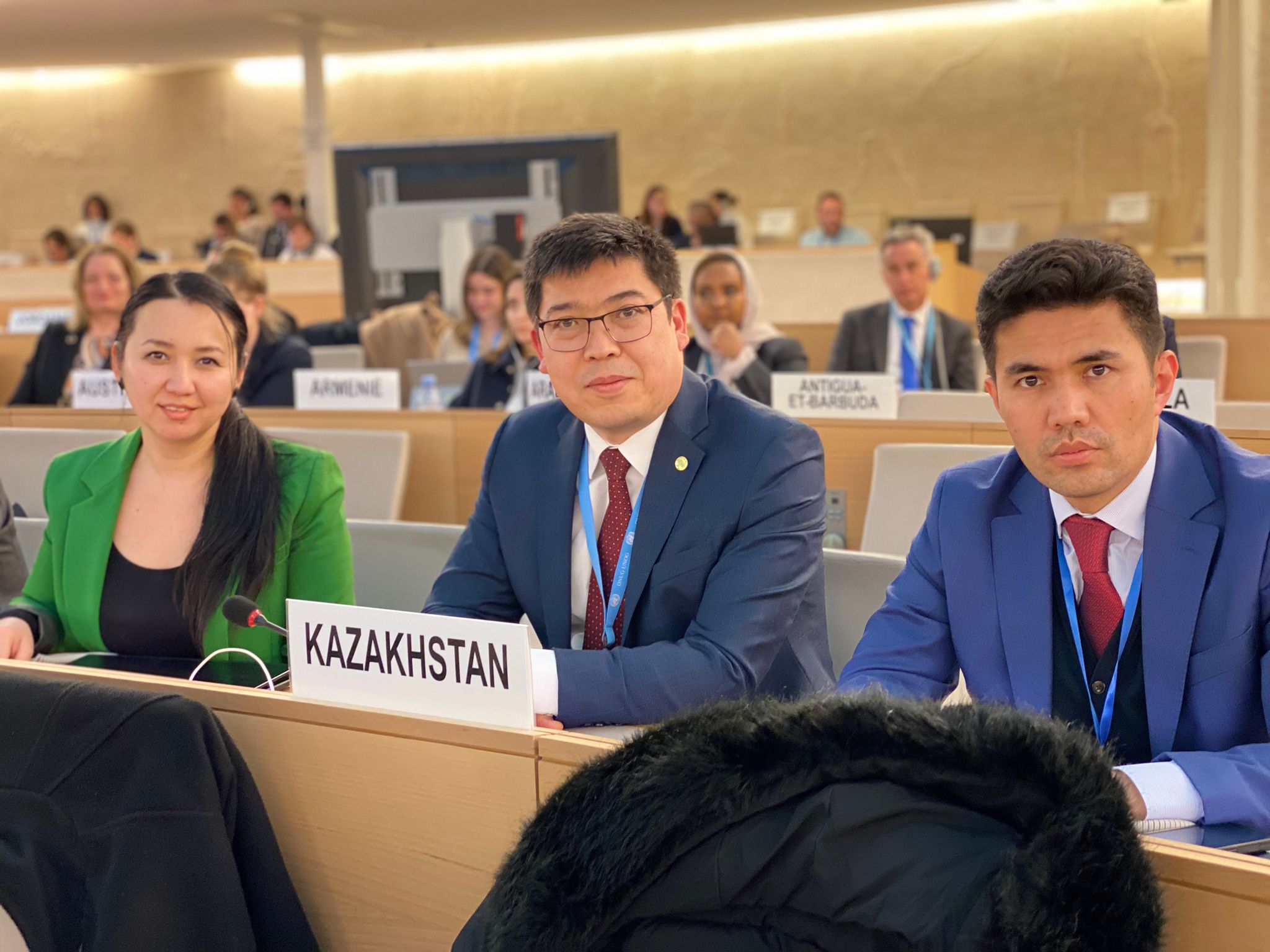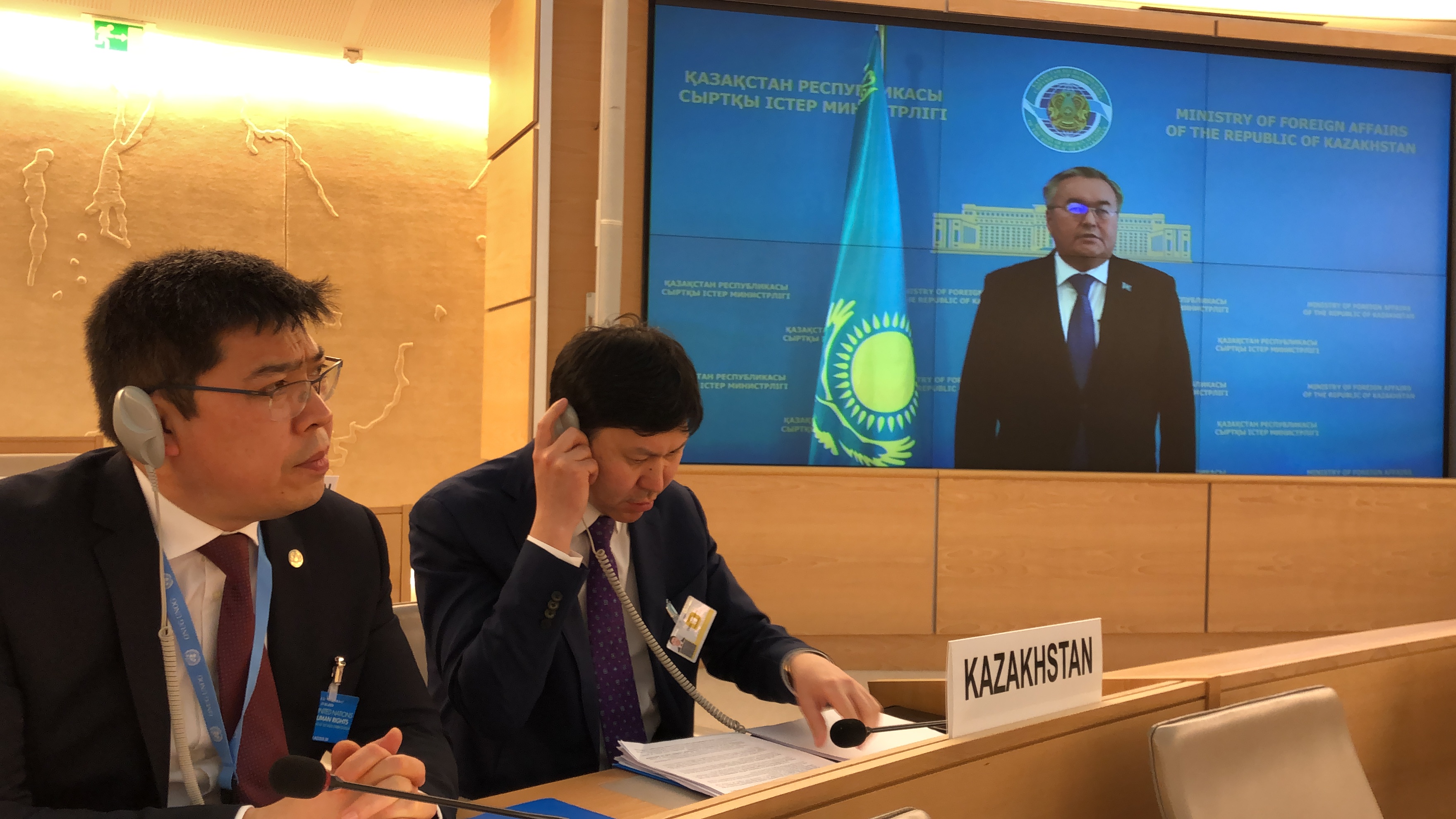Kazakhstan summed up its work at the 52nd session of the UN Human Rights Council
 Geneva, April 4, 2023 – The regular spring 52nd session of the UN Human Rights Council, which has become the longest and most productive in terms of the number of documents adopted in its history, has come to an end on the Geneva site. As a member of the HRC, Kazakhstan actively participated in discussions on ensuring, promoting and protecting human rights.
Geneva, April 4, 2023 – The regular spring 52nd session of the UN Human Rights Council, which has become the longest and most productive in terms of the number of documents adopted in its history, has come to an end on the Geneva site. As a member of the HRC, Kazakhstan actively participated in discussions on ensuring, promoting and protecting human rights.
 During the High-level Segment, Deputy Prime Minister – Minister of Foreign Affairs of the Republic of Kazakhstan Mukhtar Tileuberdi delivered a statement, underlining the significant reforms carried out in Kazakhstan last year, transforming the entire political system of the country and leading to tangible socio-economic changes.
During the High-level Segment, Deputy Prime Minister – Minister of Foreign Affairs of the Republic of Kazakhstan Mukhtar Tileuberdi delivered a statement, underlining the significant reforms carried out in Kazakhstan last year, transforming the entire political system of the country and leading to tangible socio-economic changes.
In addition, during the HRC session the Permanent Mission of Kazakhstan held a number of events, including a meeting of representatives of Central Asian countries and Mongolia to discuss the best ways for the extended Central Asia region to move towards becoming the region officially free of the death penalty, a panel discussion on "The impact of climate change on the rights of persons in vulnerable situations", as well as a presentation of international social art- project – "World Painting".
In their speeches at the main human rights platform, the delegation of Kazakhstan informed the participants about the measures taken to strengthen the country’s human rights system, including the creation of the Constitutional Court, the strengthening of the mandate of the Ombudsman for Human Rights, the signing of the Optional Protocol to the Convention on the Rights of the Child and signing the law on human rights in criminal proceedings, prevention of torture and other cruel and inhuman treatment, and also about the role of the Assembly of People of Kazakhstan in protecting and promoting the rights of ethnic groups and the results of the VII Congress of Leaders of World and Traditional Religions held in Astana in September 2022.
During the events, Kazakhstan called on the world community to eliminate inequality and discrimination, to promote and strengthen human rights, in particular the most vulnerable persons.


